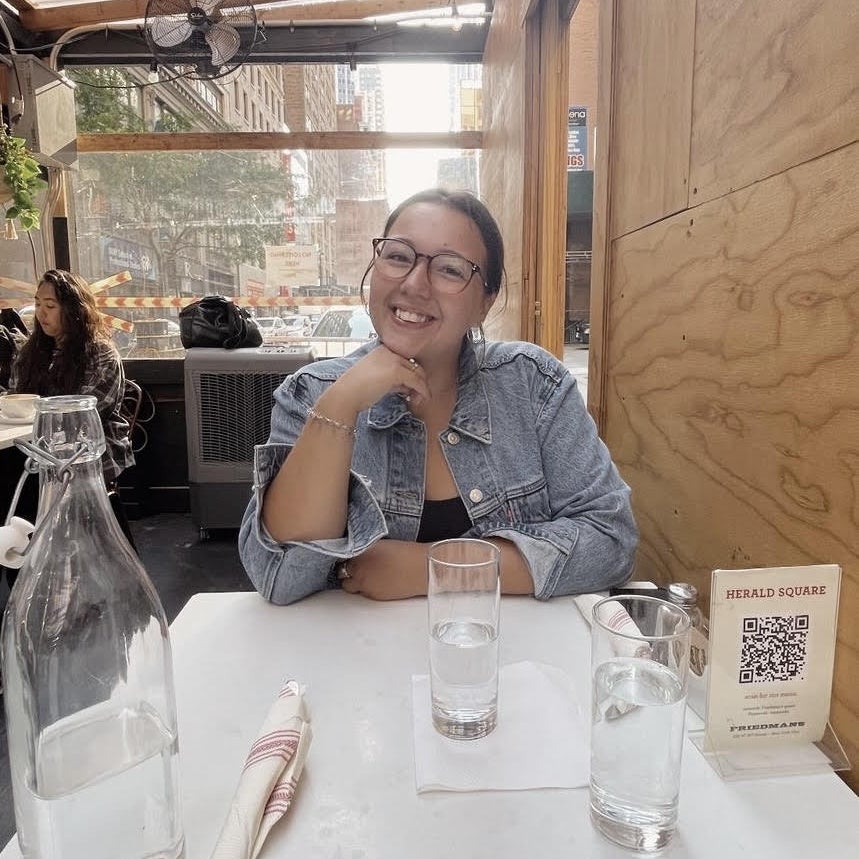Majors: Professional and Public Writing and English
Hometown: Wethersfield, CT
Q: What are you doing after graduation?
After graduation, I am starting a full-time position in book publishing as an Assistant Acquisitions Editor with Rowman & Littlefield. I’ll be working under the trade division at their Globe Pequot imprint in Essex, Connecticut.
I chose this job because book publishing is not an easy field to get into—it’s one of the most coveted yet competitive industries for someone with passions and degrees like mine, so I jumped at the chance. A lot of people believe that obtaining a Master’s is the easiest way to get into publishing, but really, experience is what matters most. Though I was accepted to Emerson College’s Publishing and Writing Master’s program, after networking with professionals in the field, they advised me to look for full-time work, and that led me to land this job. For someone who always wanted to work in the competitive field of publishing, I am so grateful (and surprised) to be working in it immediately after graduating college.
Q: Describe the process of getting your job.
Honestly, the process was long and painful. I spent months in agony trying to decide if I should continue my schooling or pursue full-time work. A week before I found out about my acceptance to Emerson College, I had a meeting with Rhode Island Monthly’s Editorial Department ( I worked with them as an editorial intern this semester), and everyone from the special publications editor to the editor-in-chief told me that while Emerson is a great place to go, getting experience first is really important in order to learn the industry hands-on. This led me to start applying for jobs. I tweaked my resume, wrote over thirty cover letters and twelve different writing samples, and I applied for jobs everywhere. Finally, I heard back from Rowman & Littlefield asking me to interview for a position I forgot I applied for, and that was the first out of five interviews I went on for this one position at this one company.
The interview process for my job was intense. I had meetings with HR representatives at the corporate branch of the company, I had two meetings with the editorial director of the imprint (he is now my boss), and I had one meeting with the head of the entire Trade Division of Rowman & Littlefield, and then, finally, I had one last meeting with the team of the Globe Pequot and Falcon Guide office in Connecticut. Two days after my last interview, I was offered a letter of employment which stated that I was the only candidate selected out of the eighty people interviewed for the job. It was surprisingly intense.
Q: How has Harrington prepared you for your plans?
The courses and the experiential education are the best aspects of the Harrington School. I discovered new ways of writing that have changed my perspective on the craft that I’ve loved for so long; I definitely credit the Department of Writing and Rhetoric with helping me build upon my strengths. Also, the fact that I was able to use an editorial internship for school credit was beyond amazing. I interned at Rhode Island Monthly magazine, and I learned so much more than I would in most classrooms, and that’s thanks to the professors and curriculum of the Harrington School.
Q: What are you most proud of from your time at URI?
I’m probably most proud of myself. I’m graduating summa cum laude. I’ve maintained a 4.0-grade point average during my tenure at URI, I made great friends here, I’ve learned a lot about writing and publishing, which has strengthened my professional portfolio, and I’m about to graduate with a full-time job in the exact field I’ve aspired to be a part of since the seventh grade. There’s a lot to be proud of which is why I’m sad to leave but excited to see what I will do next.
Q: What is your favorite Harrington memory?
I enjoyed my WRT 404 Writing With Community Partners course. A lot of what I love about writing (and publishing) is that it’s an accessible, artistic way to connect, support and amplify the voices of underprivileged populations. This course took what I love about writing and directly practiced it; the course tasked us to write communications for a local non-profit that helps to improve a social issue. I worked with the South County Immigration Committee and their efforts to protect immigrants in Rhode Island, and offering that direct service through my education was as eye-opening for me as it was impactful for the community.
Q: Is there anything else you would like to share?
I expected to be more fascinated and swept up with my degree in English than my degree in professional and public writing, but I was wrong. The professional and public writing professors, curriculum and the Harrington School overall are what was most valuable for me during my time at URI.

